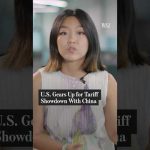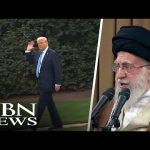President Trump’s new tariffs on Chinese goods and other imports are facing fierce legal pushback from conservative lawyers and business groups. These critics argue the president is overstepping his authority by using emergency powers meant for national crises to impose sweeping taxes on everyday products. The fight highlights a growing divide between some conservatives who support Trump’s tough trade policies and those who believe the Constitution strictly limits presidential power.
At the heart of the dispute is a decades-old law called the International Emergency Economic Powers Act. The Trump administration claims this law allows the president to declare a national emergency over issues like the fentanyl crisis or trade imbalances and then slap tariffs on foreign goods. But conservative legal experts say the law was never meant to bypass Congress’s exclusive power to set taxes and regulate trade. They argue using emergency powers for tariffs sets a dangerous precedent that could let future presidents tax anything they label an “emergency.”
A Florida-based small business, Emily Ley Paper, has already sued the administration over tariffs applied to Chinese imports. The company says the 20% tax on its Chinese-made planners and organizational tools could force layoffs or price hikes for customers. Conservative lawyers backing the case claim the tariffs hurt American families and small businesses while doing little to stop fentanyl trafficking. They stress that even in a real national crisis—like an invasion—the president still wouldn’t have the power to impose tariffs under this law.
The legal challenges have gained support from major retail groups and some Republicans who worry about unchecked executive power. Critics point out that previous presidents, including Trump during his first term, used more targeted trade laws approved by Congress to impose tariffs. By skipping congressional approval this time, the administration is testing the limits of presidential authority. Some conservative legal scholars predict the Supreme Court would rule unanimously against Trump if the case reaches the justices.
Despite the backlash, the White House insists the tariffs are necessary to protect national security and rebuild American manufacturing. Officials argue chronic trade deficits with China and other nations have weakened the economy and left key industries dependent on foreign suppliers. The administration has paused higher tariffs on most countries but raised rates on Chinese goods to 125%, claiming Beijing’s retaliation forced their hand.
Business leaders warn the tariffs could backfire by raising prices for consumers and disrupting supply chains. Industries like automotive manufacturing rely heavily on parts imported from Mexico and Canada, and new taxes could lead to job losses in heartland states. Some conservatives argue the tariffs risk sparking inflation and hurting the very workers Trump aims to protect. They say trade policies should focus on negotiating fair deals, not taxing everyday products through emergency measures.
The legal battle over Trump’s tariffs has become a rallying point for conservatives who prioritize constitutional limits on government power. Groups like the New Civil Liberties Alliance argue that letting presidents tax imports without congressional approval undermines the Founders’ vision of separated powers. They warn that if courts allow this expansion of executive authority, future presidents—Democratic or Republican—could abuse emergency powers to push unpopular policies.
As the lawsuits move forward, many conservatives are torn between supporting Trump’s America-first trade agenda and defending the Constitution’s checks and balances. The outcome could shape not just trade policy but the balance of power between the White House and Congress for years to come. With the Supreme Court likely to have the final say, all sides agree this fight is about more than tariffs—it’s about preserving the rule of law in an era of unprecedented executive action.




